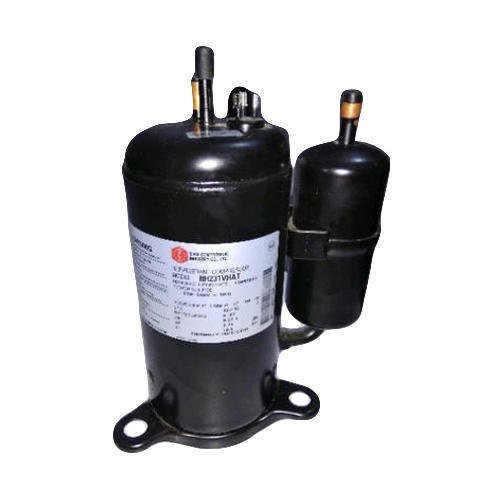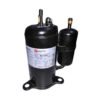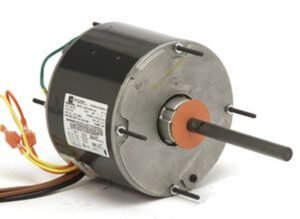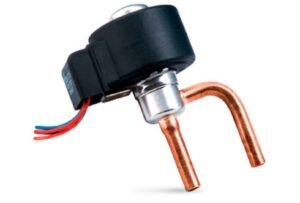Air Conditioner Compressor
₹11,999.00 – ₹22,999.00
What is an Air Conditioner Compressor?
An air conditioner compressor is a critical component of an air conditioning system, playing a vital role in the refrigeration cycle. Essentially, it acts as a pump that compresses refrigerant gas, converting it from a low-pressure gas into a high-pressure, high-temperature gas. This transformation is pivotal for the cooling process. In a typical air conditioning cycle, the refrigerant absorbs heat from the indoor air and evaporates into a gas. The compressor then takes this gaseous refrigerant and compresses it, raising both its pressure and temperature before forcing it into the condenser coils. Here, the refrigerant releases the absorbed heat and transitions back into a liquid state, continuing the cycle.
There are various types of compressors utilized in air conditioning systems, each with its unique mechanisms and applications. The reciprocating compressor, for instance, employs a piston to compress the refrigerant, making it a common choice for residential units. Its simplicity and reliability contribute to its widespread use. On the other hand, rotary compressors function through rotating elements, offering quieter operation and enhanced efficiency, particularly in smaller systems. The scroll compressor, recognized for its compact design and durability, uses two spiral elements to compress the refrigerant, resulting in fewer moving parts and reduced vibrations.
Understanding the different types of air conditioner compressors and their functions is essential for anyone looking to maintain or upgrade their cooling systems. Each type has its benefits and applications, influencing the overall efficiency and performance of an air conditioning system. The compressor, as a key player in this refrigeration cycle, is fundamental to the functionality and effectiveness of air conditioning units. Thus, being informed about its operation and types can aid in making better decisions regarding air conditioning solutions.
Functions of the Air Conditioner Compressor
The compressor plays a paramount role in the overall functionality of an air conditioning unit. It acts as the heart of the system, primarily responsible for circulating the refrigerant, a crucial chemical agent necessary for heat transfer. The functionality of the compressor begins when it draws low-pressure gas from the evaporator. This gas, which has absorbed heat from the indoor air, enters the compressor and is transformed into a high-pressure gas through thermodynamic processes.
Once the refrigerant is compressed, it exits the compressor at high pressure and temperature. The high-pressure gas then flows into the condenser, where it releases heat to the outside environment, allowing it to transform back into a liquid state. This heat removal process is essential for cooling the air inside the building, as it ensures that heat is efficiently expelled from the indoor space. Thus, the compressor not only circulates the refrigerant but also plays a critical role in the heat exchange process that is vital for effective air conditioning.
Furthermore, the compressor is instrumental in maintaining the system’s pressure levels. By ensuring that the refrigerant cycle is consistent, the compressor aids in stabilizing both high and low pressures within the system, which is essential for optimal performance. This pressure regulation directly impacts the efficiency and cooling capacity of the air conditioning unit. Additionally, the compressor works in tandem with other key components, such as the evaporator and condenser. Its ability to interact harmoniously with these elements enhances the cooling operation, ultimately making the compressor indispensable for any air conditioning system.
Types of Air Conditioner Compressors
Air conditioner compressors play a crucial role in the overall efficiency and effectiveness of cooling systems. There are several types of compressors available on the market, and understanding their distinct mechanics can help in selecting the right one for specific applications. The four primary types of air conditioner compressors are reciprocating, rotary, screw, and scroll compressors.
Reciprocating compressors operate using pistons that move within a cylinder, compressing the refrigerant gas during the suction and discharge cycles. They are known for their reliability and efficiency, making them ideal for residential air conditioning systems. However, they can be noisier and require more maintenance compared to other types. Their modular design allows for easy replacement of parts, making them maintainable but potentially cumbersome due to their size.
Rotary compressors, on the other hand, utilize blades that rotate within the cylinder for refrigerant compression. This type is typically quieter and more compact, making it suitable for smaller spaces and portable air conditioning units. While rotary compressors may not have the same cooling capacity as reciprocating ones, their efficiency makes them a popular choice for residential applications where space saving is essential.
Screw compressors employ two helical rotors to compress the refrigerant, providing continuous and efficient cooling. They are ideal for larger commercial applications due to their durability and energy efficiency at high capacity. However, the initial investment for screw compressors can be higher, which may deter smaller businesses from utilizing this technology.
Lastly, scroll compressors consist of two spiral-shaped scrolls where one scroll orbits around the other, compressing the refrigerant in a smooth motion. These compressors are known for their quiet operation and high efficiency, making them a favored choice in both residential and light commercial systems.
In conclusion, the selection of an air conditioner compressor largely depends on the cooling requirements, maintenance preferences, and available budget. Understanding the differences between these types enables informed decisions that align with individual needs.
Common Issues with Air Conditioner Compressors
Air conditioner compressors play a pivotal role in maintaining a comfortable indoor environment. However, they may encounter several issues that affect their performance. Understanding these common problems is essential for homeowners to ensure their air conditioning systems operate efficiently.
One prevalent issue is refrigerant leaks. When refrigerant flows out of the compressor, it may result in inadequate cooling. Symptoms of this problem include decreased airflow and increased energy consumption, leading to higher utility bills. The potential causes can range from wear and tear on the compressor seals to physical damage in the refrigerant lines. Ignoring these leaks not only affects comfort levels but can also lead to more severe damage, necessitating costly repairs.
Another significant concern is overheating. If the compressor operates at excessively high temperatures, it could cause the air conditioning system to fail completely. Signs of overheating include a burning smell, unusual noises, and frequent system cycling. Overheating can be attributed to blocked airflow, insufficient refrigerant levels, or a failing capacitor. Homeowners should address this issue promptly to prevent further damage to the compressor and surrounding components.
Electrical issues are also common. Faulty wiring, blown fuses, or malfunctioning capacitors can lead to a variety of symptoms, such as the unit failing to start or operating erratically. Such electrical problems often stem from aging components or installation errors. Left unaddressed, these issues could culminate in complete compressor failure, ultimately leading to expensive replacements.
Lastly, mechanical failures such as worn-out internal parts can severely impact compressor performance. Symptoms may include unusual noises or a complete lack of cooling. These mechanical issues often arise from inadequate maintenance or age-related wear and can have serious implications if not resolved. A proactive maintenance routine is vital to identifying and rectifying these problems before they escalate.
Maintenance Tips for Your Air Conditioner Compressor
Proper maintenance of your air conditioner compressor is crucial for ensuring its longevity and efficiency. Regular inspections should be a staple in your maintenance routine. Scheduling professional assessments at least once a year can help identify potential issues early, saving you from costly repairs in the future. During these inspections, a technician can check the overall condition of the compressor, including electrical connections and mechanical parts, ensuring they function as intended.
Cleaning practices are equally important. Dust and debris can accumulate on the compressor and its coils, obstructing airflow and reducing efficiency. It is advisable to regularly clear any debris from around the unit, ensuring ample airflow to the compressor. Additionally, you should occasionally clean the compressor’s coils with a gentle brush or a nozzle attachment on a vacuum to keep them free from dust buildup.
Another critical aspect of maintenance involves checking refrigerant levels. Insufficient refrigerant can lead to compressor strain, ultimately causing breakdowns. Look out for signs like increased energy bills or inadequate cooling, which may indicate that your refrigerant levels need adjustment. Always consult a professional to handle refrigerant changes, as improper handling can damage the system and the environment.
Ensuring proper airflow is also imperative. Verify that vents are not blocked by furniture or other obstructions and that air filters are changed regularly. Clogged filters can hinder airflow, forcing the compressor to work harder, thus increasing energy consumption and wear-and-tear.
In conclusion, comprehensive preventative maintenance enhances the energy efficiency and overall performance of your air conditioning system. By consistently following these practical tips and investing in professional servicing, you can significantly extend the lifespan of your compressor and ultimately enjoy a more reliable cooling experience.
| Brand Name | Amazonbasics, Blue Star, BPL, Carrier, Croma, Cruise, Daikin, Electrolux, Godrej, Gree, Haier, Hisense, Hitachi, Hyundai, IFB, Impex, Intex, Kelvinator, Koryo, LG, Livpure, Lloyd, MarQ by Flipkart, Micromax, Midea, Mitashi, Mitsubishi, Motorola, Nokia, O General, Ogeneral, Onida, Panasonic, Realme, Realme TechLife, Samsung, Sansui, Singer, TCL, Thomson, Toshiba, Trane, Vestar, Videocon, Voltas, Whirlpool, White Westinghouse |
|---|---|
| Capacity | 1 Ton To 1.5 Ton, 2 Ton |
| Type | Inverter Split, Inverter Window, Split, Window |
1 review for Air Conditioner Compressor
Only logged in customers who have purchased this product may leave a review.
Related products
-
Air Conditioner Parts
Air Conditioner Fan Motor
₹3,499.00 – ₹8,999.00 Select options This product has multiple variants. The options may be chosen on the product pageRated 5.00 out of 5 -
Air Conditioner Parts
Air Conditioner Air Filter
₹1,999.00 – ₹2,999.00 Select options This product has multiple variants. The options may be chosen on the product pageRated 5.00 out of 5 -
Air Conditioner Parts
Air Conditioner Expansion Valve
₹2,499.00 – ₹4,499.00 Select options This product has multiple variants. The options may be chosen on the product pageRated 5.00 out of 5 -
Air Conditioner Parts
AC Remote Control
₹2,899.00 – ₹4,199.00 Select options This product has multiple variants. The options may be chosen on the product pageRated 5.00 out of 5







Ganesh (verified owner) –
The warranty service was prompt and resolved my phone’s issues efficiently. Highly recommend it for its excellent service.